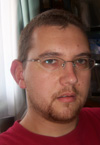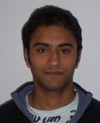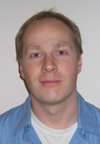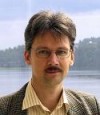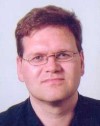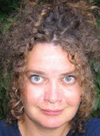D-Lib Magazine
|
Baden Hughes
Baden Hughes is a Research Fellow with the Language Technology Group in the Department of Computer Science and Software Engineering at the University of Melbourne and a Research Engineer in the Victoria Laboratory of NICTA, Australia's Information and Communications Technology (ICT) Centre of Excellence. His research interests are in a range of areas, including: formal and computational models of human language; statistical natural language processing; digital libraries; web data mining and documentary linguistics.
To return to author's article, click (here).
Amol Kamat
Amol Kamat is a final year Bachelor of Computer Science / Bachelor of Laws student at the University of Melbourne. He also works as a research assistant and programmer on a range of projects related to querying linguistic data within the Language Technology Group.
To return to Amol Kamat's article, (here).
Rutger Kramer
Rutger Kramer has a Masters degree in technical informatics from the Technical University of Delft. He is currently employed as a Scientific Programmer at the Netherlands Institute for Scientific Information Services and specializes in long-term storage and dissemination of historical content.
To return to Rutger Kramer's article, click (here).
Ralph LeVan
Ralph LeVan joined OCLC in 1987 where he led the development of the retrieval software that underlies the FirstSearch service (Newton). He then led the development of OCLC's reference Z39.50 server and Z39.50-to-Web gateway (WEBZ), which became the interface development environment for FirstSearch. More recently, he has produced a second generation of database software (Pears), which is available as Open Source from OCLC Research. He is again looking at database interfaces and is working on the initiative to implement Z39.50 as a Web Service (SRW, also available as Open Source).
To return to author's article, click (here).
Robert Sanderson
Dr. Robert Sanderson is currently a lecturer in Computer Science at the University of Liverpool. He completed his interdisciplinary Ph.D. in Information Science and Medieval French in 2003, and he has been working on the Cheshire Information Retrieval System in conjunction with the University of California, Berkeley since 2000. He is the Senior Editor for the SRW protocol specification.
To return to Robert Sanderson's article, click (here).
Pasi Tyrväinen
Dr. Pasi Tyrväinen is Professor of Digital Media at the Department of Computer Science and Information Systems at the University of Jyväskylä. He received his doctoral decree at Helsinki University of Technology in 1994. His previous affiliations include R&D management positions at Honeywell Industrial Control and Nokia Research Center. His research interests include digital rights management, enterprise content management, communication genres, and software business.
To return to Pasi Tyrväinen's article, click (here).
René van Horik
René van Horik received his M.A. degree in History at the University of Nijmegen. He works as a researcher and project leader at the Netherlands Institute for Scientific Information Services (NIWI-KNAW). He is involved in several projects in which ICT is applied in the Humanities. On a part-time basis he is working on his dissertation on the longevity of digital images at Delft University of Technology.
To return to author's article, click (here).
Annelies van Nispen
Annelies van Nispen is a specialist on digital data archives for the Netherlands Historical Data Archive (NHDA). The NHDA is currently part of the Netherlands Institute for Scientific Information Services (NIWI), but will soon be part of a new institute. She has a background in library science and history, and she specializes in research and development of metadata and digital archiving standards.
To return to Annelies van Nispen's article, click (here).
Jeffrey Young
Jeffrey Young received his B.S. in computer science from Ohio State University and graduated Beta Phi Mu with an M.L.S from Kent State University. He has worked for OCLC since 1987 and in the Office of Research since 1996. In addition to his involvement with OAI and NDLTD, other areas of research include authority control and web services.
To return to Jeffrey Young's article, click (here).
Copyright © 2005 Corporation for National Research Initiatives
Top | Contents
Search | Author Index | Title Index | Back Issues
E-mail the Editor
doi:10.1045/february2005-authors
